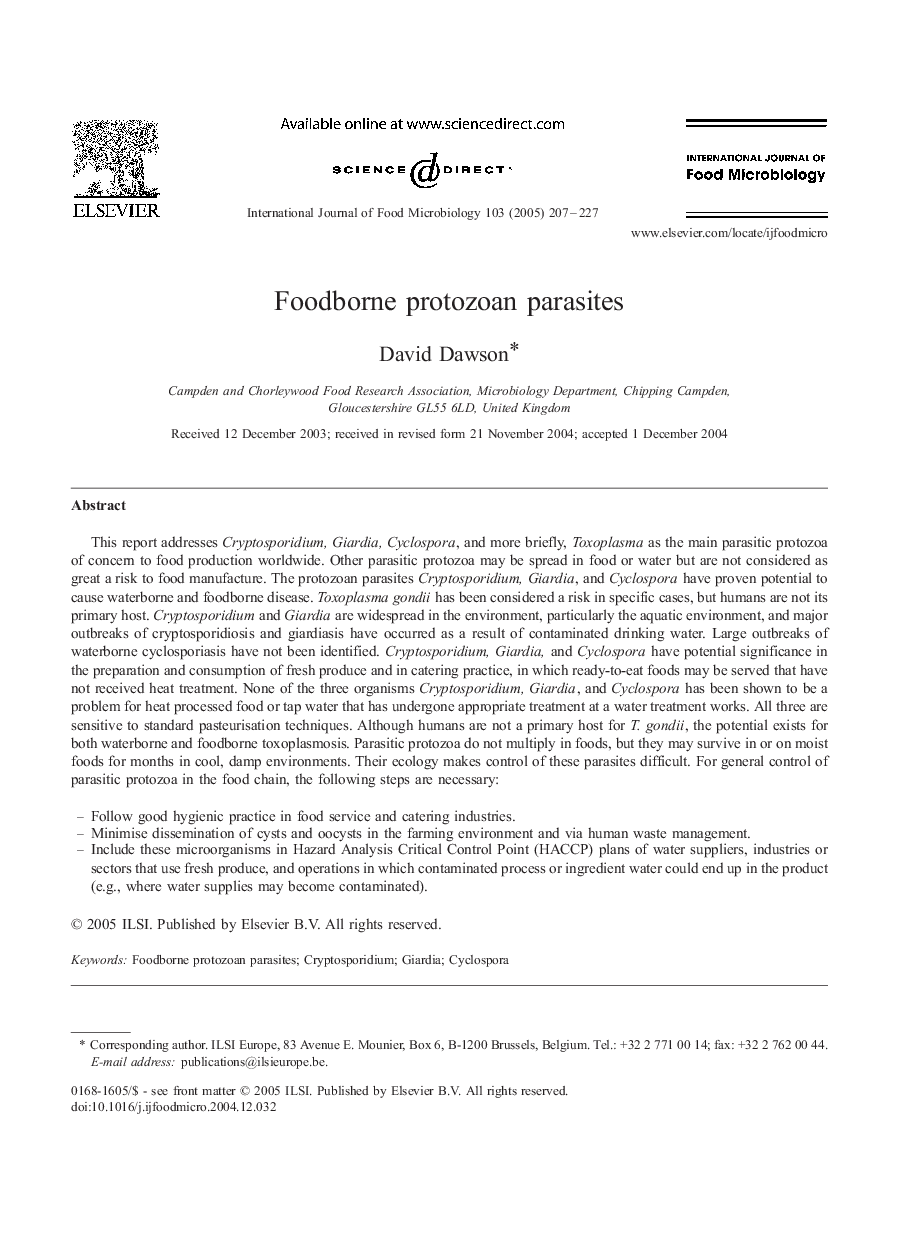| Article ID | Journal | Published Year | Pages | File Type |
|---|---|---|---|---|
| 10107333 | International Journal of Food Microbiology | 2005 | 21 Pages |
Abstract
This report addresses Cryptosporidium, Giardia, Cyclospora, and more briefly, Toxoplasma as the main parasitic protozoa of concern to food production worldwide. Other parasitic protozoa may be spread in food or water but are not considered as great a risk to food manufacture. The protozoan parasites Cryptosporidium, Giardia, and Cyclospora have proven potential to cause waterborne and foodborne disease. Toxoplasma gondii has been considered a risk in specific cases, but humans are not its primary host. Cryptosporidium and Giardia are widespread in the environment, particularly the aquatic environment, and major outbreaks of cryptosporidiosis and giardiasis have occurred as a result of contaminated drinking water. Large outbreaks of waterborne cyclosporiasis have not been identified. Cryptosporidium, Giardia, and Cyclospora have potential significance in the preparation and consumption of fresh produce and in catering practice, in which ready-to-eat foods may be served that have not received heat treatment. None of the three organisms Cryptosporidium, Giardia, and Cyclospora has been shown to be a problem for heat processed food or tap water that has undergone appropriate treatment at a water treatment works. All three are sensitive to standard pasteurisation techniques. Although humans are not a primary host for T. gondii, the potential exists for both waterborne and foodborne toxoplasmosis. Parasitic protozoa do not multiply in foods, but they may survive in or on moist foods for months in cool, damp environments. Their ecology makes control of these parasites difficult. For general control of parasitic protozoa in the food chain, the following steps are necessary:
Keywords
Related Topics
Life Sciences
Agricultural and Biological Sciences
Food Science
Authors
David Dawson,
